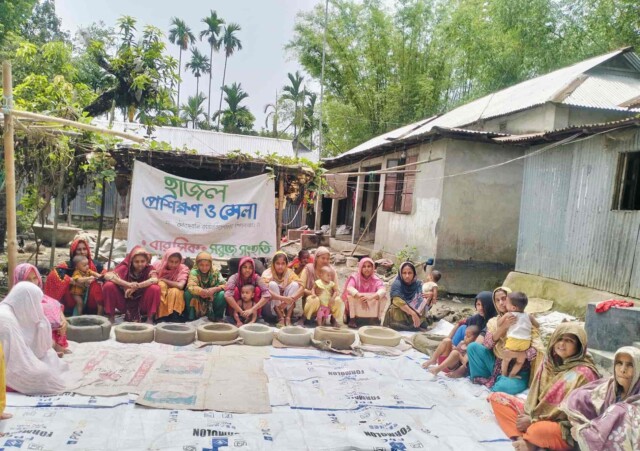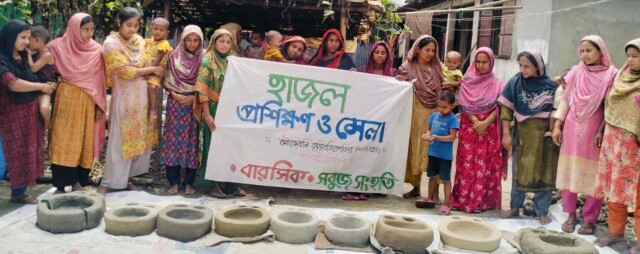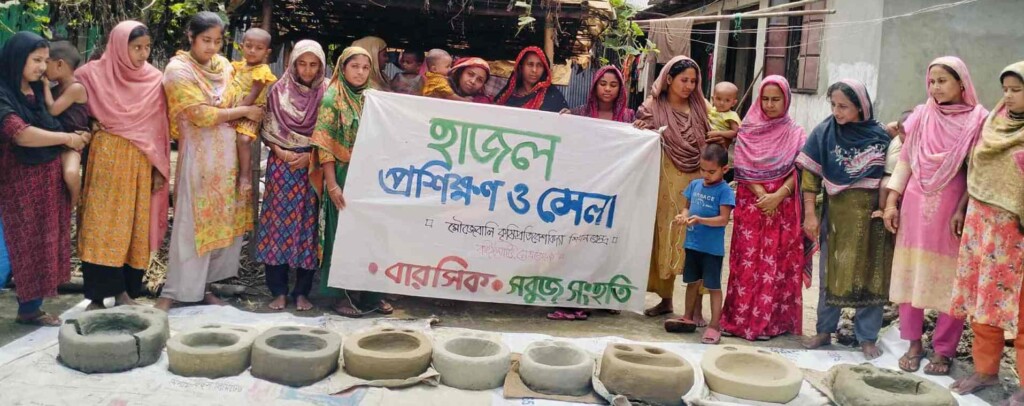By Rukhsana Rumi from Netrokona
A workshop and fair centered round the traditional technology ‘Hajol’ was recently held in the village of Mouzebali in Kailati Union, under the Netrokona Sadar Upazila. The event was organized by the Mouzebali Agroecology Learning Center (ALC) with support from BARCIK.
Presided over by Shotobari coordinator Kalza Akter, the workshop was facilitated by local woman farmer Momota Akter. She explained the process of making Hajol to the village women, detailing the required materials, its use, maintenance, and how to expand its practice. She pointed out that in the past, when eggs were hatched without Hajol, many were wasted. Now, with Hajol, the egg hatching success rate has risen dramatically, with nearly no losses.

At the fair, 20 women displayed Hajol units they had crafted themselves. The event drew the attention of around 50 participants, including local women, farmers, youth, and girls. According to local communities, this traditional technology was previously unknown in the area. They credited BARCIK for re-introducing and teaching the method through training. Villagers believe that organizing more fairs at the village level would help to expand the technology further.
Local farmer Abul Kalam said, “The rearing of native chickens is decreasing in our country. The method of hatching eggs using Hajol that the women have learned is simple, safe, and will be profitable for them.”
The participating women shared, “Using Hajol to hatch eggs is not only effective, but it is a method born of our own knowledge, wisdom, and experience. It will increase our opportunities for income while also validating our skills and knowledge.”

It is to be note that Hajol is an indigenous, clay-based technology used to hatch chicken eggs. It includes attached food and water containers so that the hen does not need to leave during incubation, maintaining a consistent temperature. This method requires no purchased materials.
The event concluded with an award ceremony for the women who participated in making Hajol. The women-led, knowledge-based local initiative was widely appreciated by both participants and visitors.

